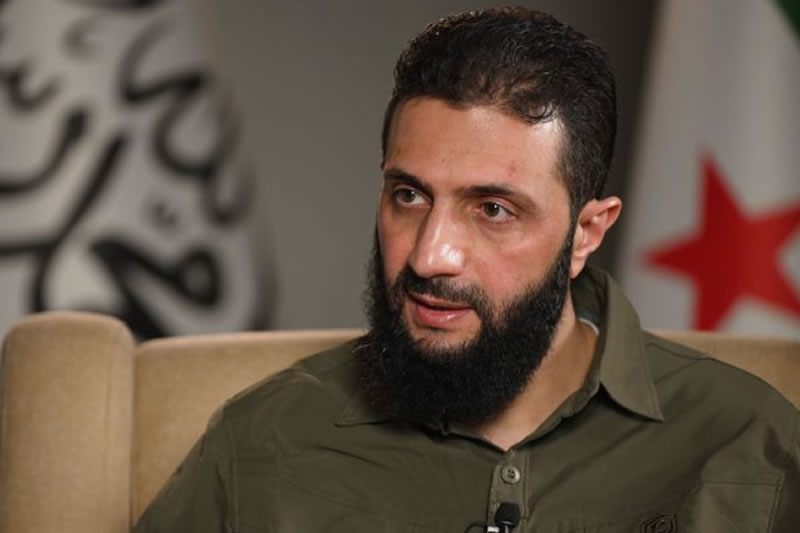

Crisis in Syria and HTS’ Abu Mohammed al-Julani: There is more to it than meets the eye
The humanitarian situation in Syria after the recent crisis is being closely monitored. Global leaders agreed in a recent meeting in Jordan to support a peaceful transition process in Syria. They called for justice and equality for all citizens.
The talks come after the fall of Bashar al-Assad’s regime as the opposition group Hayat Tahrir al-Sham (HTS) sought control. Rebuilding institutions and bringing back stability in Syria in order to help millions of refugees return to their homeland is the need of the hour.
The Syrian refugee crisis is the largest globally. Since the beginning of the internal conflict in 2011, more than 14 million people have fled their homes in search of safety. More than 7.2 million Syrians remain internally displaced.
70% of the population of Syria is estimated to be still in need of humanitarian assistance. Neighbouring countries such as Turkey, Lebanon, Jordan, Iraq and Egypt are hosting approximately 5.5 million Syrian refugees.
In the beginning of December, in just three days, opposition fighters captured the second-largest city of Syria, after the stunning collapse of President al-Assad’s regime. Abu Mohammed al-Julani, head of HTS, led the offensive.
The founder of Hayat Tahrir al-Sham has nearly a decade sought to dissociate himself from other armed forces and their focus on transnational operations, shifting instead to focusing on creating an “Islamic Republic” in Syria, as per media reports.
HTS ran Idlib through the Syrian Salvation Government (SSG) – established in 2017 to ensure civil services, education, infrastructure, healthcare and a judiciary, and manage aid distribution and finances at the same time.
But numerous campaigners, media reports and local monitors suggest that HTS does not tolerate dissent. Independent journalism organisation Syria Direct also reports that the group is behind the disappearances of campaigners and other issues.
The BBC recently reported that al-Julani’s efforts in Idlib reflected his broader strategy to demonstrate that HTS is capable of governing effectively. By prioritising stability, he aimed to represent Idlib as a model of success under HTS rule.
But under his leadership, Hayat Tahrir al-Sham has crushed other militant factions in its effort to dominate the scene, as per the media report. For more than a year leading up to the recent conflict, al-Julani faced protests in Idlib.
Critics started comparing the HTS founder’s rule to that of Bashar al-Assad’s, accusing the group of authoritarianism, suppressing dissent and silencing critics. Protesters urged HTS to release people imprisoned in Idlib allegedly for expressing dissent.
In response to these criticisms, HTS initiated many reforms. It disbanded or rebranded a security force accused of human rights violations and established a department to let citizens lodge complaints. But critics stress these measures are insufficient.
HTS leader and commander-in-chief of the latest administration, al-Julani, has appointed Mohammed al-Bashir as the caretaker prime minister of Syria until March 1. These efforts are aimed at stabilising the country.
The caretaker administration seeks to ensure basic amenities for all people and prevent armed groups from fighting over state resources and ministries. But experts fear that HTS could lose credibility if it refuses to share power after three months.
Also Read | Israeli Strikes in Gaza Kill at Least 18 Palestinians, Medics Report
In a notable change in the federal law enforcement priorities, the FBI has directed its agents to spend about a…
Bengaluru-based IT giant Infosys has informed employees their Q4 FY25 performance bonuses will be less than they anticipated due to…
Oil companies and labor unions in Norway have reached a new wage agreement for oil workers which is a significant…
KARAM Safety, a world leader in occupational safety, has unveiled its innovation, the Mobile Demo Van (MDV) 4.0 at the…
Fischer India is happy to announce that it has received a hat trick of Great Place to Work Certifications which…
Nissan Motor Co., Ltd. is reportedly increasing its global workforce reductions to more than 10,000 positions bringing the total job…
This website uses cookies.
Read More